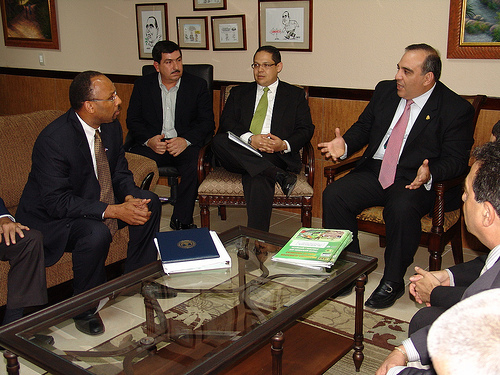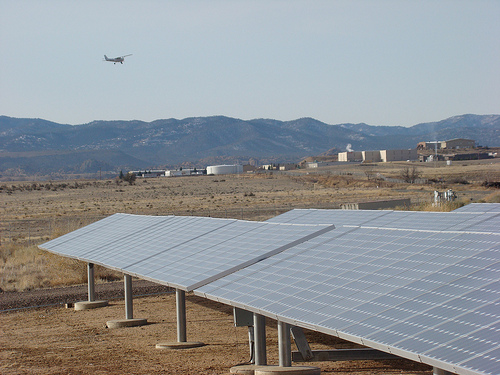By John Brewer, Administrator of the Foreign Agricultural Service
I’m here in Tegucigalpa to recognize Honduras as one of the Western Hemisphere’s leaders in incorporating biotechnology in agricultural and energy production. Biotechnology is a powerful tool that can be used to boost agricultural productivity and food security, reduce environmental impact, combat climate change, and build prosperity among the rural poor – a vision that USDA and the U.S. Government share with Honduras.
Last night and this morning I met with Honduran government officials from the agroforestry sector and the Honduran Biotechnology and Biosafety Commission; the Inter-American Institute for Cooperation in Agriculture; academic and think tank scholars; and local farmers. Each of these groups work together to implement the use of biotechnology in the fields and to gain acceptance by society.
While 25 countries around the world are currently planting genetically engineered (GE) crops, Honduras is the only Central American country doing so. I chose to come to Honduras because their leadership in the implementation of bio-safety regulations can be a model for other countries in the region.
GE crops provide a multitude of tangible benefits to both producers and consumers. Pest-resistant crops reduce the need for pesticides and save on fossil fuel usage and carbon emissions. Increased productivity per acre ensures food security and keeps food prices down, while enhanced nutritional value helps to alleviate hunger.
Planting GE crops isn’t the only area where Honduras can be a leader in our hemisphere. The U.S. government is committed to working with willing partners such as Honduras to simultaneously combat climate change and provide alternate sources of energy. Under President Obama’s Energy and Climate Partnership of the Americas Honduras is a priority country for collaboration with USDA’s Renewable Biomass Energy project. This program aims to improve agriculture and forestry practices, increase scientific exchanges, and enhance biomass production. Today I encouraged Honduras to ramp up production of renewable biomass energy with USDA’s assistance through this program.
President Lobo’s government has stated that each hectare of biomass harvested in Honduras could create 1.5 jobs directly and 2 jobs indirectly. The U.S. government fully supports Honduras in realizing this potential. Since 2007, Honduras has reduced or eliminated taxes and tariffs on biofuels and implemented a mechanism to mix biofuels with fossil fuels to lower harmful emissions from cars, making this sector attractive for investments. By offering energy alternatives to fossil fuels right in our own hemisphere, Honduras is increasing energy security for the United States too. I’ve appreciated meeting the people making these advances possible. USDA and Honduras have a win-win biotech partnership that I see strengthening in the future.
Check back tomorrow for another blog post from me about USDA’s Food for Progress programs here in Honduras. Be sure to check out FAS on Facebook and Twitter too!

On June 28 and 29, Administrator Brewer met with Honduran government officials, including Agriculture and Livestock Minister Jacobo Regalado.



